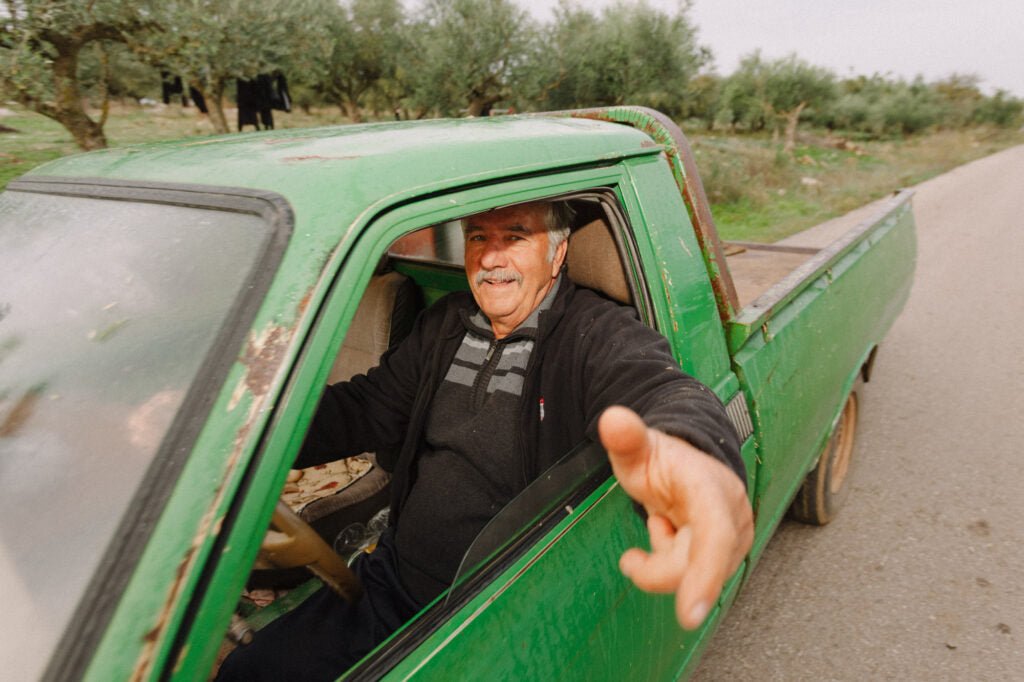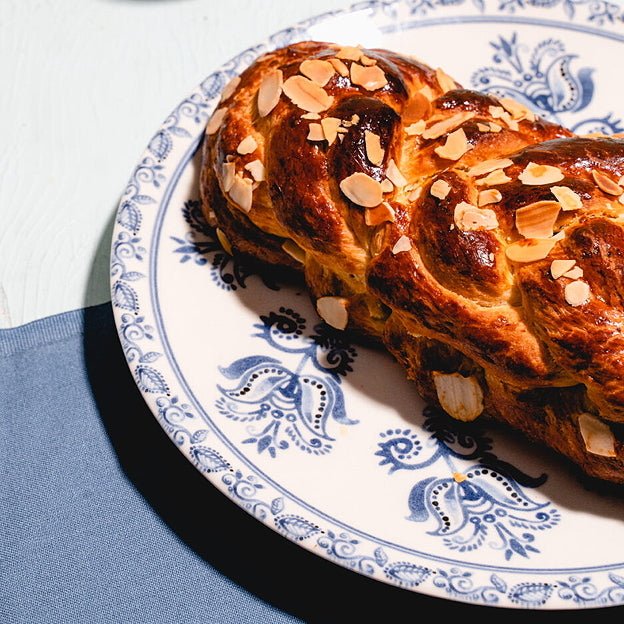Why the best olive oil in the world comes from Greece
Lush greenery as far as the eye can see. Untouched, rugged nature, scorching midday heat, a fresh breeze from the sea. Somewhere a church bell rings. In Kalamata, the capital of the Greek region of Messinia, life pulsates, often until late into the night. Here, on the Peloponnese peninsula, one of humanity's oldest agricultural products has been cultivated for a good 5,000 years: olives. And our olive oil also saw the light of day right here. Because we are convinced: olive oil from Greece is among the best in the world.

The right location and cultivation are important
Olive trees are picky. They need sandy, loose, and dry soil. They don't like moisture at all. Therefore, they shouldn't have too much rain or allow water to accumulate.
There are an estimated 120 million olive trees in Greece, many of them several hundred years old. The oldest olive tree in the world also grows in Greece. It is estimated to be an incredible 3,000 to 5,000 years old. This is because these trees find exactly the right conditions to grow and thrive here. And it was clear to us from the start that this is where the olives for our olive oil should grow.
However, we quickly learned that not all olive cultivation is created equal. On industrial olive plantations, the olive trees are sprayed and fertilized. The goal is for the olives to grow and ripen as quickly as possible. Quantity takes precedence over quality.
In our organically certified olive groves, however, things are more leisurely. The Koroneiki olive trees don't like excessive watering, so they can't be irrigated artificially. Instead, patience is required – and loving care. Calcareous soil and plenty of sun ensure that the Koroneiki olives thrive in our extra virgin olive oil. In this stress-free cultivation, the quality of our olives is our top priority. This ensures that we get the best olive oil in the world.

People's love for their olives: Harvesting by hand
"What makes the best olive oil in the world?" we are often asked. Of course, it depends on the region, the olive variety, and the cultivation method. But the way the olives are harvested and processed also plays a significant role.
Did you know, for example, that industrial harvesting on large olive plantations is anything but animal-friendly? Harvesting machines roam the trees like vacuum cleaners. They do this at night. However, birds sleep in the trees. They cannot orient themselves at night and are completely disturbed by the noise of the machines. They are then simply sucked in and killed. Several million songbirds, including protected species, die in this cruel way every year.
Guaranteed no bird is killed for our Koroneiki olive oil, as we harvest the olives for the world's best olive oil entirely by hand. Yes, it's not only quite strenuous (harvesting takes place during the day), it also takes longer. But the hard work is worth it. And you can taste it. All of our harvesters are dedicated to their work.

processing
The harvest takes place between October and January. We then immediately process the fresh olives into our high-quality Koroneiki olive oil.
Sure, everyone knows about cold-pressed olive oil, and for most, this term is a sign of the olive oil's good quality. What few people realize, however, is that traditional pressing in oil mills involves very long contact with oxygen, which is detrimental to the quality of the oil.
We, on the other hand, rely on the modern method of cold extraction. We extract the olive oil using a centrifuge. Thanks to this special treatment, we can preserve the full flavor of the Koroneiki olives as best as possible and process them into our high-quality green oil. And the aroma that this green gold exudes even as it leaves the oil mill is truly unique.
Therefore, the ultimate standard for premium olive oil should not be "cold-pressed," but rather "cold-extracted." And, of course, our extra virgin olive oil is a purely natural product. This means no chemicals are added.
Koroneiki olives for the best olive oil in the world: Delicious and healthy
Greek olive oils use different olive varieties. However, the Koroneiki olive is the most popular. Around 60 percent of all cold-pressed olive oils in Greece are made from it. We also use the small green Koroneiki olives to produce our exceptionally delicious organic olive oil. Its fruity, slightly lemony aroma is unique. This makes it not only an excellent olive oil for frying and baking, but also ideal for seasoning salads. With our organic products, you as a consumer don't have to worry about any pesticide contamination.
But the unique taste isn't all it offers: The cold-extracted olive oil from our Koroneiki olives is also incredibly healthy. It has a very high content of monounsaturated fatty acids such as oleic acid (approximately 70 percent). These are responsible for some of the beneficial properties of extra virgin olive oil, such as lowering blood pressure and cholesterol levels. Unsaturated fatty acids are also attributed to fighting inflammation and preventing some types of cancer.
Our Koroneiki olive oil is particularly recommended because of its high polyphenol content. These polyphenols protect the body from free radicals. Another advantage: The olive oil doesn't go rancid and has a longer shelf life.
The German Nutrition Society also lists olive oil as an important component of a healthy diet because of its low content of saturated fatty acids.
( https://www.dge.de/ernaehrungspraxis/vollwertige-ernaehrung/10-regeln-der-dge/ )
Feel free to compare the test for ZOE with an olive oil comparison from 2021 ( https://www.test.de/Olivenoel-im-Test-4971053-0/ ).
Buy the best olive oil in the world
Want to experience the unique taste and health benefits of our olive oil for yourself? Bring a little Mediterranean holiday feeling to your plate with Koroneiki Extra Virgin Olive Oil.



Leave a comment
All comments are moderated before being published.
This site is protected by hCaptcha and the hCaptcha Privacy Policy and Terms of Service apply.